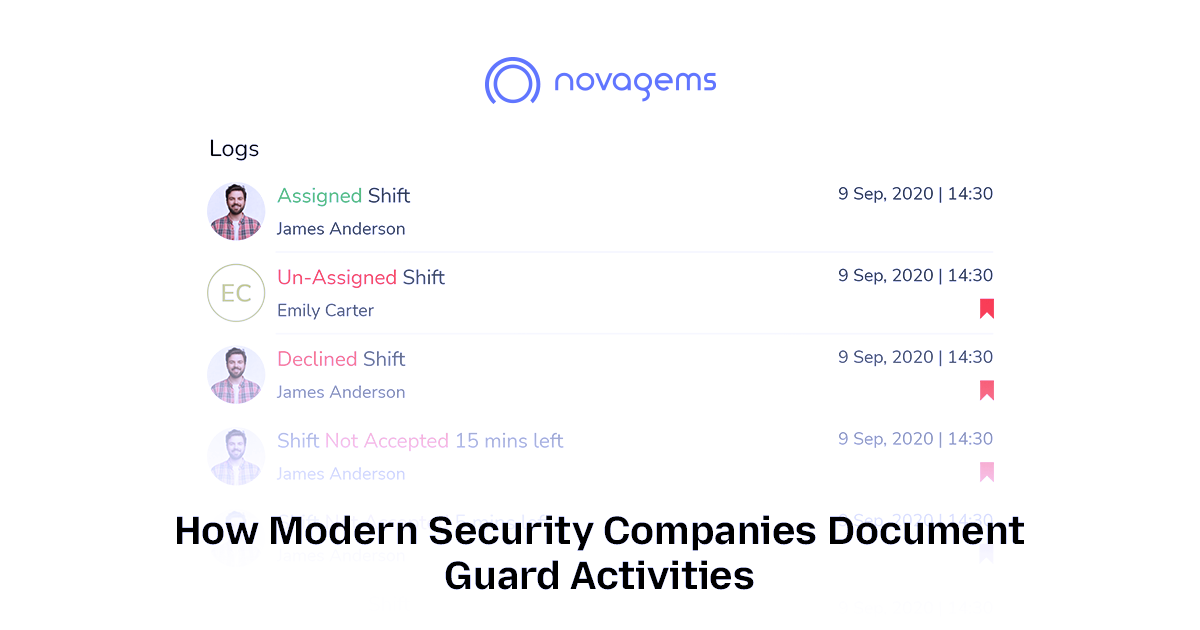Irregular Workforce Scheduling and Its Consequences in Healthcare Industry
Published on: Tue, Apr 2, 2024
Read in 11 minutes

The healthcare industry never sleeps. Hospitals, clinics, and care facilities operate 24/7 to meet patient needs. That means doctors, nurses, and support staff work around the clock in rotating shifts. While this system is necessary to keep patient care uninterrupted, it comes with a heavy price: irregular work scheduling in healthcare.
Irregular scheduling means unpredictable shifts, sudden changes, last-minute overtime, and inconsistent rest days. For healthcare professionals, it can feel like their personal lives are controlled by the scheduling board. For administrators, it creates an ongoing struggle to balance staff availability, patient demand, and compliance requirements.
In this guide, we’ll explore the healthcare staff scheduling challenges caused by irregular shifts, the impact on both staff and patients, and practical solutions. We’ll also see how healthcare workforce management software can simplify scheduling and reduce burnout.
Key Takeaways
- Irregular work scheduling in healthcare contributes to staff fatigue, high turnover, and lower patient safety.
- Healthcare staff scheduling challenges include overtime abuse, last-minute changes, and staff shortages.
- Burnout is a major consequence: more than 50% of nurses report experiencing burnout symptoms.
- Best practices in healthcare shift scheduling include predictable rosters, fair distribution of hours, and flexible shift swaps.
- Healthcare workforce management software helps hospitals automate schedules, track compliance, and improve staff satisfaction.
Irregular work schedules are very common in the healthcare industry. These schedules can include working at different times of the day, night shifts, weekends, and being on call. In this blog, we will look at how these irregular schedules affect healthcare workers, patient care, and the overall functioning of healthcare facilities. By understanding these impacts, we can find ways to improve work conditions and healthcare quality.
Why Scheduling is a Critical Issue in Healthcare
Scheduling in healthcare is different from other industries. In retail or office work, schedules can often be adjusted without major consequences. In healthcare, the stakes are much higher:
- Life-saving work: Staffing shortages or scheduling errors can delay treatment, affect patient safety, or even put lives at risk.
- 24/7 demand: Healthcare facilities never close. Someone must always be on duty, nights, weekends, and holidays included.
- Complex roles: Scheduling is not just about numbers. You need the right mix of doctors, nurses, specialists, and support staff at all times.
- Compliance rules: Hospitals must follow labor laws, union agreements, and regulations on working hours, breaks, and overtime.
Balancing all these factors is what makes healthcare shift scheduling one of the most complex workforce challenges today.
Understanding Irregular Work Schedules in Healthcare
Definition and Examples of Irregular Work Schedules
Irregular work schedules mean that work hours change frequently and are not predictable. In healthcare, this can mean working night shifts, rotating between day and night shifts, or being on call at different times. For example, a nurse might work a 12-hour night shift one day and a day shift the next.
Irregular work scheduling in healthcare creates stress for both staff and administrators. What may look like a simple staffing solution on paper can have serious human and operational consequences. Below are the most common problems hospitals and clinics face when shifts are unpredictable.
Impact on Healthcare Workers’ Health and Wellbeing
Healthcare needs 24/7 care, so irregular work schedules are widespread. Doctors, nurses, and other healthcare workers often have to adapt to these changing schedules, which can create many challenges.
Effects of Unpredictable Work Hours on Health
- Physical Health Consequences
Unpredictable work hours can lead to serious health problems. Working long hours and not getting enough sleep can increase the risk of heart disease, diabetes, and other chronic conditions. Tiredness from irregular shifts can also cause accidents and injuries both at work and while traveling to and from work.
- Hospitals often rely on mandatory overtime when staff shortages occur. While this fills short-term gaps, it creates long-term resentment among workers.
- Nurses who are constantly asked to work beyond their scheduled hours lose trust in management and feel undervalued.
- Overuse of overtime also increases the risk of errors in judgment and patient safety incidents because staff are simply too tired to perform at their best.
- Mental Health Effects
Irregular work schedules can also affect mental health. The lack of a routine and the disruption of sleep patterns can cause stress, anxiety, and depression. Healthcare workers with unpredictable schedules are more likely to feel burned out and emotionally exhausted.
- Nurses and doctors often work 12–16 hour shifts and sometimes multiple night shifts back-to-back.
- Irregular scheduling disrupts sleep patterns and increases fatigue. Chronic fatigue often leads to burnout, a state of emotional and physical exhaustion.
- Burnout is a growing crisis in healthcare — according to the American Nurses Association, over 50% of nurses report symptoms of burnout, and scheduling is one of the leading factors.
- Burned-out staff are less engaged, less productive, and more likely to quit, creating a ripple effect across the entire system.
- Sleep Disorders and Poor Sleep Quality
Irregular work hours disrupt the body’s natural sleep-wake cycle, leading to poor sleep quality and sleep disorders. This lack of good sleep affects overall health and makes it hard for healthcare workers to do their jobs well. Managing work-life balance in healthcare jobs is anyways difficult. And on top of that if the worker has to handle changing sleeping patterns it will take a toll on their health.
- Effects on Work-Life Balance
Challenges in Managing Family Responsibilities
Irregular work schedules make it difficult for healthcare workers to balance work and personal life. It can be hard to take care of children, maintain relationships, and handle household tasks when work hours are unpredictable.
- One of the biggest healthcare staff scheduling challenges is the lack of work-life balance. Irregular schedules mean staff can’t plan personal activities, family events, or vacations.
- Many nurses miss birthdays, anniversaries, or children’s school activities because of unpredictable last-minute shifts.
- Over time, this damages morale and contributes to higher turnover rates, especially among younger staff seeking more flexible careers.
- Social Life and Personal Time Constraints
Having an irregular schedule can limit social interactions and personal time, leading to feelings of loneliness and dissatisfaction. Healthcare workers might miss social events or have little time for hobbies, which can negatively impact their quality of life.
Patient Care and Safety Implications
- Quality of Patient Care
Irregular work schedules can directly affect the quality of patient care. Tired and stressed healthcare workers are more likely to make mistakes, which can harm patients. Consistent and predictable work hours are important for maintaining high standards of care.
- Fatigued staff are more likely to make medication errors, miss symptoms, or delay treatment.
- Poor communication during shift handovers is more common when staff are overworked and tired.
- Studies show that hospitals with high nurse burnout rates also see lower patient
- Increased Risk of Medical Errors
Research shows that irregular and long work hours increase the chances of medical errors. Fatigue and lack of focus can lead to mistakes in giving medications, assessing patients, and other critical tasks, posing significant risks to patient safety.
Economic and Organizational Consequences
- Employee Turnover and Retention Issues
High levels of stress and burnout from irregular work schedules lead to higher turnover rates among healthcare workers. This affects the continuity of patient care and results in significant recruitment and training costs for healthcare institutions. Since Work-life balance in the healthcare industry is gaining more limelight, workers will switch if they feel they are facing any issue.
- Burnout and poor scheduling push healthcare professionals to leave the industry altogether.
- Replacing a single nurse can cost a hospital $40,000–$60,000, factoring in recruitment, onboarding, and training.
- High turnover means the remaining staff are forced to pick up the slack, increasing the cycle of exhaustion and making scheduling problems worse.
- Financial Implications for Healthcare Institutions
The financial burden of irregular work schedules goes beyond employee turnover. Poor health and increased medical errors can lead to higher healthcare costs and potential legal issues. Investing in better scheduling practices can save costs and improve overall efficiency. Aim to use strategies for Work-life balance in the healthcare industry so that the workers are alert and ready to assist.
- Irregular scheduling may accidentally violate labor laws or union agreements around maximum work hours, rest breaks, and overtime caps.
- This exposes healthcare organizations to fines, lawsuits, or disputes with unions, adding financial and reputational costs.
In short, the problems created by irregular scheduling extend beyond the staff. They affect patient safety, hospital finances, and overall healthcare outcomes.
Strategies to Avoid Negative Effects
- Policy Recommendations and Legal Protections
Governments and healthcare organizations can implement policies to protect workers from the negative effects of irregular schedules. Providing advance notice for shifts, ensuring adequate rest periods, and offering flexible scheduling options are important steps.
- Best practices for healthcare work schedules
Healthcare employers can adopt best practices to improve work schedules. Implementing predictable shift patterns, using technology for better scheduling, and considering employee preferences can enhance job satisfaction and reduce stress. Regular assessments and adjustments based on employee feedback can also be helpful.
Scheduling Challenges in Healthcare
Despite the known issues, scheduling in healthcare remains complex due to the need for continuous patient care. Balancing the demands of patient care with the well-being of healthcare workers is a significant challenge that requires innovative solutions and a commitment to improving work conditions.
Pro tip - Use scheduling software to manage not only scheduling but whole operations.
Best Practices for Healthcare Scheduling
To overcome these issues, hospitals and clinics must rethink how they build schedules. The goal should be to balance patient care needs with staff wellbeing. Here are proven best practices for smarter healthcare shift scheduling.
1. Publish Schedules in Advance
- One of the simplest fixes is to create and share rosters at least 2–4 weeks ahead of time.
- This gives staff the ability to plan personal lives, reducing stress and frustration.
- Publishing early also reduces the need for last-minute changes, which often cause resentment.
2. Limit Consecutive Night Shifts
- Working nights is hard on the body because it disrupts the natural sleep cycle.
- Best practice: avoid scheduling staff for more than 3 consecutive night shifts.
- After a block of nights, provide at least 48 hours off so employees can recover.
- This improves alertness and reduces the risk of accidents at work.
3. Spread Overtime Fairly
- Overtime should not always fall on the same employees.
- Use scheduling systems to track and distribute overtime evenly across the team.
- This avoids overworking a small group of staff while others get lighter workloads.
- Fairness in scheduling improves morale and reduces feelings of favoritism.
4. Allow Flexible Shift Swaps
- Flexibility is critical for retaining staff.
- Letting employees swap shifts with colleagues (with supervisor approval) gives them more control without disrupting operations.
- Digital scheduling tools make this process faster and more transparent.
5. Build Acclimatization and Recovery Periods
- For new hires or staff returning after time off, gradually introduce them to heavy shifts.
- Avoid assigning difficult overnight or back-to-back shifts right away.
- Give employees recovery days after especially demanding schedules.
6. Collect and Act on Staff Feedback
- Staff often know better than administrators where scheduling pain points are.
- Use regular surveys or check-ins to ask:
-
- Are shifts fair?
- Are breaks sufficient?
- Do you feel rested?
- Act on this feedback quickly to build trust.
7. Use Technology to Simplify Scheduling
- Manual scheduling using spreadsheets often causes more problems than it solves.
- Healthcare workforce management software automates the process, ensuring fairness and compliance.
- Key features to look for:
-
- AI-based scheduling that matches staff skills to patient needs.
- Overtime tracking and labor law compliance.
- Mobile apps so staff can see schedules, request time off, or swap shifts.
- Analytics to track burnout, absenteeism, and coverage gaps.
8. Prioritize Patient Safety in Scheduling Decisions
- Patient outcomes should be the guiding principle.
- Never sacrifice rest and recovery for short-term coverage — tired nurses and doctors put patients at risk.
- Use predictive analytics to forecast demand (ER surges, seasonal illnesses) and schedule proactively.
By applying these best practices, healthcare leaders can reduce scheduling conflicts, improve staff morale, and deliver safer, higher-quality patient care.
Conclusion
Irregular work scheduling in the healthcare industry has profound consequences on the health and well-being of healthcare workers, the quality of patient care, and the efficiency of healthcare institutions. By understanding these impacts and implementing effective strategies, we can create a healthier, more sustainable work environment that benefits both healthcare professionals and the patients they serve.
Addressing the challenges of irregular work schedules requires a collaborative effort from policymakers, healthcare administrators, and the workers themselves. Together, we can build a system that promotes better health, improved patient care, and greater job satisfaction.
By focusing on the well-being of healthcare workers through better scheduling practices, we can ensure they are in the best possible condition to provide the high-quality care that patients need and deserve. This not only improves patient outcomes but also creates a more positive and productive work environment for everyone involved.
Get a Free Trial
Sign up For Newsletter
Latest Blog Posts
Get Started
Start being productive & grow your business
with Novagems





